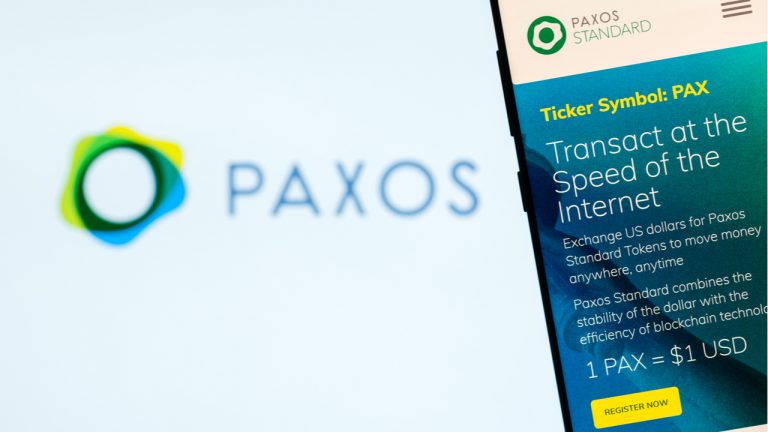
Paxos, a regulated blockchain company, recently presented the basket of resources that back its stablecoins. Paxos Standard (PAX) and Binance USD (BUSD) are reportedly backed almost 100% by cash and cash equivalents. Dan Burstein, CCO of Paxos, harshly criticized Tether and Circle, issuers of other stablecoins, stating their products we’re not really stablecoins.
Paxos Reveals Stablecoin Backing Basket
Paxos, a blockchain-regulated company, revealed the basket of assets backing their issued stablecoin on Wednesday. The company, which issues Paxos Standard and Binance USD, two important stablecoins, presented a report that states 96% of the backing is comprised of cash and cash equivalents. While the cash is held in U.S. dollars at insured institutions, the cash equivalents are held in the form of U.S. Treasury bills with maturities of three months or less.
The remaining 4% is comprised of U.S. Treasury bills that will mature in October 2021. Paxos explains these are separated from cash equivalents because the maturity date is still four months away. This report is very different from what’s being presented by Tether and Circle, which are also involved in the issuance of stablecoins — USDT and USDC, respectively — the two leading stablecoins in the market.
Stablecoin Companies Criticized
Dan Burstein, Chief Compliance Officer of Paxos, issued harsh criticism regarding these stablecoin groups, calling their products stablecoins by name only. Burstein stated:
These tokens are backed by illiquid and risky debt obligations – a critical weakness that no prudential regulator would allow to exist as this creates undue risk for their customers.
Paxos is regulated by the New York State Department of Financial Services (NYDFS), meaning these backing assets are constantly under the scrutiny of state regulators. As a consequence, these backing assets can only be held in safe and liquid forms, like U.S.-based insured bank accounts and Treasury bonds.
Circle, who is reportedly going public via a SPAC (special purpose acquisition company) deal later this year, presented an attestation of USDC reserves on July 20th, disclosing that only 61% of its issuance was backed by cash or cash equivalents.
Tether has also been criticized for the lack of transparency about the assets backing more than 60 billion dollars in USDT issued. While it released a simple sheet depicting the structure of its backings last month, Tether’s CTO Paolo Ardoino acknowledged that a full audit of Tether’s funds is still months from happening yesterday in an interview on CNBC.
What do you think about Paxos’ stablecoin asset disclosure? Tell us in the comments section below.
Comments
Post a Comment